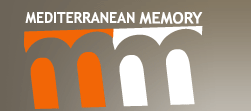Father Tony |

|
Collection title
I Remember...
First broadcast date
2010
Abstract
French of Lebanese origin, father Tony was born in the region of Saida in South-Lebanon.
He arrived to France 10 years ago, and he is a follower of the melkite greek-catholic confession. He officiates in St Nicolas de Myre's church in Marseille since July 2009.
Audiovisual form
Portrait
Primary theme
Latin and oriental christendom
Secondary themes
- Contemporary historical challenges 19th-20th c.
- Society and way of life / Religious Practices
Map locations
- Lebanon - Coastline - Saïda
- France - South East - Marseille
Context
Father Tony
Sophie Gebeil
Antoine Forget is a Catholic priest of the Byzantine rite (also called Melchite). The term Melchite appears in the 5th century and comes from malkaya which means king in Syriac (those who followed the king). The Melchites are Eastern Christians (Syria-the Lebanon-Palestine-Egypt) who recognise the authority of the Pope, unlike the Orthodox Christians. However their form of worship stems from the Byzantine: Mass is said in Arabic and Greek. The filming was done partly in the church of St Nicolas-de-Myre at Marseille where Father Tony has been officiating since 2009. Built by Catholic immigrants from the Middle East in 1821, it is the oldest Eastern church in Marseille
In the film, Father Tony talks about the civil war (1975-1990) in the Lebanon during which he continued his mission. Religion was one of the reasons the Lebanese militias were fighting each other, another being the foreign interventions connected with the Israeli-Arab conflict. Father Tony talks about the suffering of the Lebanese people during the war: people forced to move homes, the destruction and daily difficulties. During the fighting the militias were mainly using rocket-launchers, rifles and Kalashnikovs to wage a war of positions. The aerial bombing was limited, and the worst hit zones were those in the front line, which remained fairly static during the war: the mountains, the south of the country and Beirut. As from 1985 the front line moved to the east of Saida, where Father Tony, Antoine Forget, had been born, and many Christians fled the area. There were thousands of displaced people, particularly in southern Lebanon, because of the climate of fear, violence, massacres and forced explusions. To this was added, in 1978, the Israeli advances in the south which forced both Christians and Muslims to take refuge in the capital. The village of Kfar Kala, whose ruined church is quoted in the film, is in the south-eastern part of the country, in a region which was occupied and bombed by the Israeli army in 1982 and 1985. On a day-to-day basis the people had to limit their journeys because of the road-blocks, insecurity and lack of fuel.
Geolocation on Googlemaps of the places named:
Bibliography-Site-ography :
MERMIER Franck et VARIN Christophe, Mémoire de guerre au Liban (1975-1990), Sinbad, Actes Sud, Paris, 2010
VERDEIL E., FAOUR G., VELUT S., Atlas du Liban. Territoires et société, IFPO – CNRS Liban, Beyrouth, 2007. Disponible en ligne, consulté le 10.12.11, <http://ifpo.revues.org/402>. Nasser Liliane Rada, Ces Marseillais venus d'Orient, L'immigration libanaise à Marseille aux XIXe et XXe siècles, Editions KARTHALA, Paris, 2010, 255 pages.



















